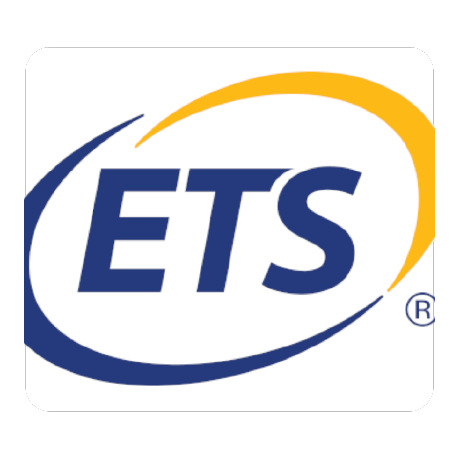
skll
SciKit-Learn Laboratory (SKLL) makes it easy to run machine learning experiments.
OTHER License
SciKit-Learn Laboratory
.. image:: https://gitlab.com/EducationalTestingService/skll/badges/main/pipeline.svg :target: https://gitlab.com/EducationalTestingService/skll/-/pipelines :alt: Gitlab CI status
.. image:: https://dev.azure.com/EducationalTestingService/SKLL/_apis/build/status/EducationalTestingService.skll :target: https://dev.azure.com/EducationalTestingService/SKLL/_build?view=runs :alt: Azure Pipelines status
.. image:: https://codecov.io/gh/EducationalTestingService/skll/branch/main/graph/badge.svg :target: https://codecov.io/gh/EducationalTestingService/skll
.. image:: https://img.shields.io/pypi/v/skll.svg :target: https://pypi.org/project/skll/ :alt: Latest version on PyPI
.. image:: https://img.shields.io/pypi/l/skll.svg :alt: License
.. image:: https://img.shields.io/conda/v/ets/skll.svg :target: https://anaconda.org/ets/skll :alt: Conda package for SKLL
.. image:: https://img.shields.io/pypi/pyversions/skll.svg :target: https://pypi.org/project/skll/ :alt: Supported python versions for SKLL
.. image:: https://img.shields.io/badge/DOI-10.5281%2Fzenodo.12825-blue.svg :target: http://dx.doi.org/10.5281/zenodo.12825 :alt: DOI for citing SKLL 1.0.0
.. image:: https://mybinder.org/badge_logo.svg :target: https://mybinder.org/v2/gh/EducationalTestingService/skll/main?filepath=examples%2FTutorial.ipynb
This Python package provides command-line utilities to make it easier to run machine learning experiments with scikit-learn. One of the primary goals of our project is to make it so that you can run scikit-learn experiments without actually needing to write any code other than what you used to generate/extract the features.
Installation
You can install using either ``pip`` or ``conda``. See details `here <https://skll.readthedocs.io/en/latest/getting_started.html>`__.
Requirements
- Python 3.10, 3.11, or 3.12.
-
beautifulsoup4 <http://www.crummy.com/software/BeautifulSoup/>__ -
gridmap <https://pypi.org/project/gridmap/>__ (only required if you plan
to run things in parallel on a DRMAA-compatible cluster) -
joblib <https://pypi.org/project/joblib/>__ -
pandas <http://pandas.pydata.org>__ -
ruamel.yaml <http://yaml.readthedocs.io/en/latest/overview.html>__ -
scikit-learn <http://scikit-learn.org/stable/>__ -
seaborn <http://seaborn.pydata.org>__ -
tabulate <https://pypi.org/project/tabulate/>__
Command-line Interface
The main utility we provide is called ``run_experiment`` and it can be used to
easily run a series of learners on datasets specified in a configuration file
like:
.. code:: ini
[General]
experiment_name = Titanic_Evaluate_Tuned
# valid tasks: cross_validate, evaluate, predict, train
task = evaluate
[Input]
# these directories could also be absolute paths
# (and must be if you're not running things in local mode)
train_directory = train
test_directory = dev
# Can specify multiple sets of feature files that are merged together automatically
featuresets = [["family.csv", "misc.csv", "socioeconomic.csv", "vitals.csv"]]
# List of scikit-learn learners to use
learners = ["RandomForestClassifier", "DecisionTreeClassifier", "SVC", "MultinomialNB"]
# Column in CSV containing labels to predict
label_col = Survived
# Column in CSV containing instance IDs (if any)
id_col = PassengerId
[Tuning]
# Should we tune parameters of all learners by searching provided parameter grids?
grid_search = true
# Function to maximize when performing grid search
objectives = ['accuracy']
[Output]
# Also compute the area under the ROC curve as an additional metric
metrics = ['roc_auc']
# The following can also be absolute paths
logs = output
results = output
predictions = output
probability = true
models = output
For more information about getting started with ``run_experiment``, please check
out `our tutorial <https://skll.readthedocs.org/en/latest/tutorial.html>`__, or
`our config file specs <https://skll.readthedocs.org/en/latest/run_experiment.html>`__.
You can also follow this `interactive Jupyter tutorial <https://mybinder.org/v2/gh/AVajpayeeJr/skll/feature/448-interactive-binder?filepath=examples>`__.
We also provide utilities for:
- `converting between machine learning toolkit formats <https://skll.readthedocs.org/en/latest/utilities.html#skll-convert>`__
(e.g., ARFF, CSV)
- `filtering feature files <https://skll.readthedocs.org/en/latest/utilities.html#filter-features>`__
- `joining feature files <https://skll.readthedocs.org/en/latest/utilities.html#join-features>`__
- `other common tasks <https://skll.readthedocs.org/en/latest/utilities.html>`__
Python API
~~~~~~~~~~
If you just want to avoid writing a lot of boilerplate learning code, you can
also use our simple Python API which also supports pandas DataFrames.
The main way you'll want to use the API is through
the ``Learner`` and ``Reader`` classes. For more details on our API, see
`the documentation <https://skll.readthedocs.org/en/latest/api.html>`__.
While our API can be broadly useful, it should be noted that the command-line
utilities are intended as the primary way of using SKLL. The API is just a nice
side-effect of our developing the utilities.
A Note on Pronunciation
.. image:: doc/skll.png :alt: SKLL logo :align: right
.. container:: clear
.. image:: doc/spacer.png
SciKit-Learn Laboratory (SKLL) is pronounced "skull": that's where the learning happens.
Talks
- *Simpler Machine Learning with SKLL 1.0*, Dan Blanchard, PyData NYC 2014 (`video <https://www.youtube.com/watch?v=VEo2shBuOrc&feature=youtu.be&t=1s>`__ | `slides <http://www.slideshare.net/DanielBlanchard2/py-data-nyc-2014>`__)
- *Simpler Machine Learning with SKLL*, Dan Blanchard, PyData NYC 2013 (`video <http://vimeo.com/79511496>`__ | `slides <http://www.slideshare.net/DanielBlanchard2/simple-machine-learning-with-skll>`__)
Citing
If you are using SKLL in your work, you can cite it as follows: "We used scikit-learn (Pedragosa et al, 2011) via the SKLL toolkit (https://github.com/EducationalTestingService/skll)."
Books
SKLL is featured in `Data Science at the Command Line <http://datascienceatthecommandline.com>`__
by `Jeroen Janssens <http://jeroenjanssens.com>`__.
Changelog
See GitHub releases <https://github.com/EducationalTestingService/skll/releases>__.
Contribute
Thank you for your interest in contributing to SKLL! See `CONTRIBUTING.md <https://github.com/EducationalTestingService/skll/blob/main/CONTRIBUTING.md>`__ for instructions on how to get started.